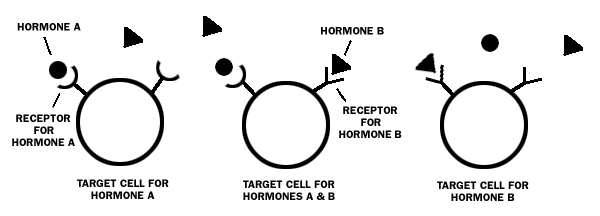
Have you ever considered that skipping breakfast might actually be good for you? That’s a big bite to swallow, but intermittent fasting has proven to be an incredibly healing modality with incredible potential to jumpstart a sluggish, overburdened body. What we’re finding through medical research is that cellular vitality and bodily fortitude hinges on when we eat just as much as it does what we eat. Intermittent fasting is the practice of shortening the window in which we eat down to eight or less hours in an effort to revitalize and reset the body on a daily basis. At our practice, we don’t enjoy our first meal until around noon. We eat breakfast (meaning that we break our fast) in the middle of the day. While intermittent fasting does not necessarily have to be structured in such a way where the first meal isn’t consumed until midday, it’s the strategy we find works best for us. Read on for some more food for thought.
What is Intermittent Fasting?
An ancient healing strategy that has been used by nearly all cultures and religions from all over the world, intermittent fasting is, according to fasting expert Dr. Jason Fung, “the controlled, voluntary abstinence of food” for a period of time each day. Intermittent fasting is not the same as starvation. Looking back, all of the ancient philosophers and healers throughout history employed fasting routinely due to its extremely beneficial outcomes. Fasting is natural and healthy, and intrinsically beneficial. Our body knows that by strategically abstaining from food, healing takes place. Our bodies are designed to fast.
Intermittent fasting is the practice of shortening the time in which food is consumed down to four, six, or eight hours, and fasting for the remainder of the day. For example, we eat from noon to eight in the evening, and then fast from eight to noon the next day. Lunch is eaten at 12pm, we rest and digest for a few hours, and then eat a second meal around 7 or 8pm. After that, nothing but water is had until noon the next day. No snacking, grazing, munching, or nibbling takes place outside of the two large meals that are consumed. What this does is allow the body the ability to reset itself, heal and repair, and focus on cellular detoxification.
Top 5 Benefits of Intermittent Fasting
- AUTOPHAGY
The body has a way of taking care of itself in miraculous ways, if we allow it to. In autophagy, the body creates a scavenger-like “Pac Man” process that seeks out toxic, dead, diseased cells and tissues in the body, eats them, and recycles them so that the cleaned-up parts can be used for fuel and energy. Essentially, the process of autophagy is one in which the body eats itself. While it sounds pretty gory, it’s actually one of the best things the body does for us. Autophagy is the body’s natural, built in clean up and repair system. When we intermittent fast, the body has the opportunity to seek out food in the form of damaged, struggling cells. In fact, some doctors overseas use fasting as a prescribed form of medicine to successfully shrink tumors and growths. The body’s capacity for transformative regeneration is unparalleled. We allow our bodies to heal when we take a break from eating for a prolonged period of time. Intermittent fasting gives the body a better chance of cleaning itself, which is what makes it the number one reason to consider this type of eating schedule.
- BRAIN HEALTH
Brain fog and forgetfulness have become so common, that the symptoms have become increasingly ignored societally. We weren’t designed to live half human, half zombie. We should be sharp and ready for action throughout all of our waking hours, and sleep soundly and peacefully once the sun sets. One of the awesome benefits of intermittent fasting is the “lights on” effects it has on brain health. The brain starts firing better when the body has had the opportunity to clean itself up through autophagy and through digestive rest. Another one of the reasons our brains start working better when we fast is due to Insulin Degrading Enzyme. IDE lowers insulin levels. Fasting increases the body’s IDE levels, which allows for a systemic reduction of insulin. This is a really good thing.
One of the things that happens when the body gets overly toxic and sluggish is the build up of amyloid plaques in the brain. These plaques are are protein-rich, sticky, goopy build ups (almost like crusty, gunky scabs) that accumulate around nerve cells and cause Alzheimer’s Disease and other neurodegenerative disorders. This brain-cell-destroying plaque is toxic. Insulin Degrading Enzyme has the ability to break down amyloid plaques, which is crucial for healing. As we fast, our body increases IDE, which in turn starts eating away the amyloid plaques that have formed in our nervous system.
Additionally, when we fast, our body creates new brain cells. Brain Derived Neurotrophic Factor (BDNF) is another huge benefit derived from fasting. BDNF is a growth factor found in the central nervous system that acts to encourage the growth of new neurons and synapses. When we fast, the body sees a significant boost in BDNF.
- WEIGHT LOSS
Most people have heard about intermittent fasting because of the amazing weight loss benefits it boasts. Fasting helps the body cut into the stubborn fat areas such as the midsection, hips, and thighs. Insulin Degrading Enzyme helps to bring down insulin levels, which allows the body to begin shedding unnecessary stored fat. While weight loss isn’t the first reason intermittent fasting is so beneficial, with the amount of people struggling with high insulin and weight loss resistance, it certainly makes the list. Bodybuilders have been using intermittent fasting to get that super lean physique for decades. Before you attempt to lose weight by intermittent fasting, please be sure to consult with your doctor. Not everyone is cut out for immediate intermittent fasting. As always, seek medical counsel when starting any weight loss regimen.
- HORMONE BALANCING
Intermittent fasting is excellent for balancing hormones. Specifically, insulin and growth hormone. Most people these days have pre-diabetes, type 2 diabetes, or some sort of metabolic disorder. These conditions are caused by elevated insulin levels. As we discussed in our last post, high insulin causes a slew of health problems, including heart disease and cancer. Fortunately, the body has a natural way of lowering insulin through fasting. When we fast, our insulin levels drop, which naturally helps balance our hormones.
As we fast and our insulin levels go down, the body’s growth hormone production goes up. The two hormones oppose one another: when insulin is high, growth hormone is down, and when insulin is low, growth hormone is high. We absolutely need growth hormone to be strong and healthy. Fasting allows our body to produce more growth hormone and help build and repair the necessary tissues and cells in our bodies. Fasting allows growth hormone to increase by at least five times. That’s incredible.
- HORMONE SENSITIVITY
The body can become resistant to more than just insulin. Cortisol (our stress hormone) can be overproduced so much, that our body becomes resistant to it and essentially begins to need it for normal function. Similarly, we can become resistant to thyroid hormone, causing an array of unfortunate symptoms to become pervasive in our lives: hair loss, chronic fatigue, brain fog, intolerance to cold, etc.

photo credit: http://www.ftmguide.org/hormonebasics.html
In order for hormones to work, the hormone has to bind to a cell receptor site. What ends up happening in chronic inflammatory conditions and in any state of illness, however, is that those receptor sites become dulled and blunted. It’s like going to a concert: the first time you go, it’s super loud. The next few times maybe it’s not so loud. If you were to go to a concert every night, perhaps you’d lose your hearing because your eardrums would be so desensitized to the loud sounds. Similarly, when the cell receptor sites are blunted, the cell is no longer able to receive or “hear” the hormones that are trying to get in. This happens for a multitude of reasons, but toxicity, inflammation, and systemic sluggishness are some of the main reasons why. Fasting helps to make those cell receptor sites receptive again, which helps sensitize hormones since they are able to effectively bind to their sites and get into the cell to do their jobs.
Intermittent fasting is an awesome ancient healing strategy and one that we recommend to nearly all of our patients. As always, please seek guidance from your doctor before beginning any type of fasting protocol. We’d love to help you get started.
To find out more, check out our YouTube video. If you have questions and need some help and guidance getting started, we’d love to hear from you. Leave us a comment below.





